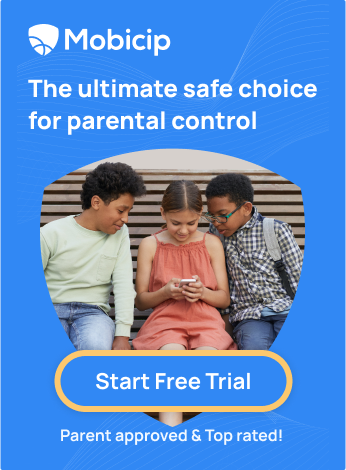Unlocking the Benefits of Podcasts for Children: A Guide for Parents

I was surprised one evening to find my little one sitting quietly, cross-legged, eyes closed, listening intently to a voice that spins tales of adventure, science, or history. No screens, no flashing lights—just imagination at work. This is the world of podcasts, a medium that has quietly surged in popularity, transforming the way we consume stories and information.
Podcasts aren’t just for adults anymore. From bedtime stories to fascinating “whys” of the world, they are becoming a go-to source for children’s learning and entertainment. In a time where screens dominate, podcasts offer a refreshing alternative—one that sparks curiosity while giving young minds the space to imagine and grow.
Podcasts already have a strong reach among kids,
- 25% of kid monthly podcast listeners aged 6-12 listen to podcasts nearly every day
- 24% of those aged 13+ listen to podcasts every day
Source: Edison Research, The Kids Podcast Listener Report
As a parent, you might be wondering how podcasts can benefit your child. Maybe you’re curious about what shows to pick or how to get started. That’s exactly why I wrote this guide.
In this article, we’ll explore:
Why podcasts are good for kids: From boosting vocabulary to inspiring creativity, the benefits are endless.
How to choose and access podcasts: Simple tips to find age-appropriate, engaging, and safe options.
The best podcasts for different ages and interests: Whether your child loves dinosaurs or mysteries, there’s something for everyone.
By the end, you’ll have all the tools you need to make podcasts a fun and educational part of your child’s life. Let’s get started!
Why Podcasts Are Good for Kids
Educational, Cognitive, and Emotional Benefits of Podcasts for Children
Have you noticed how curious kids are about the world? Podcasts can fuel that curiosity! They’re like an open book—only you don’t have to flip the pages. Podcasts help kids in so many ways.
94% of kids aged 6-12 who listened to a podcast in the last month say that they learn new things from podcasts
Source: Edison Research, The Kids Podcast Listener Report
Build Vocabulary and Language Skills
Listening to podcasts can expand your child’s vocabulary and improve their language understanding. Shows like Brains On! introduce fun topics with words explained in ways that kids can easily pick up. According to Focus On The Family, auditory learning strengthens literacy, especially when kids hear stories or conversations.
Improve Attention, Memory, and Listening Comprehension
Listening to a story or discussion helps kids focus, which strengthens their attention span. As they follow along, recalling details from episodes enhances their memory and boosts their comprehension skills.
Stimulate Imagination, Curiosity, and Critical Thinking
Podcasts like Wow in the World spark kids’ imaginations by encouraging them to picture adventures and stories in their minds, fueling creativity. As they listen, these shows inspire curiosity and encourage kids to ask questions, leading to deeper critical thinking about the world around them.
Provide Exposure to Diverse Topics and Perspectives
Kids can explore subjects like science, history, or art through engaging episodes. When they hear voices and stories from different cultures and backgrounds, it broadens their understanding.
Offer Entertainment, Fun, and Relaxation
Podcasts like Storynory entertain kids while keeping them relaxed, making them great for bedtime or quiet time. They offer screen-free fun, giving parents a break from managing screen time.
Podcasts foster family connections
Podcasts are a great way to bond as a family. You can listen together, share laughs, and discuss what you learned. It’s a fun, screen-free activity that brings everyone closer.
Common Myths or Misconceptions About Podcasts and Children
If you think podcasts might not work for kids, let me clear up a few myths.
“Podcasts are boring or too difficult for kids.”
Not true! Many podcasts are tailored to different ages and interests. For example, Circle Round shares engaging folktales for younger listeners, while older kids might enjoy science shows or true stories.
“Podcasts aren’t interactive or engaging.”
This is a big misconception. Podcasts encourage active listening, which gets kids involved. Some shows even ask kids to send in questions or ideas. They might not have flashy visuals, but they spark kids’ imaginations like no screen can.
“Podcasts aren’t suitable for young children or those with special needs.”
Podcasts can be incredibly flexible. Many, like Good Night Stories for Rebel Girls, use simple language and soothing narration perfect for younger kids. Children with special needs can benefit, too—there are podcasts designed for sensory sensitivity or tailored to specific learning styles.
How to Choose and Access Podcasts for Kids
Choosing the right podcast and making them accessible for your child can feel tricky, but it doesn’t have to be! Here are some tips to make it simple:
Tips and Criteria for Selecting Podcasts for Children
-
Check the Age Range and Ratings
- Look for podcasts designed for your child’s age group. Many shows mention the recommended age in their descriptions.
- Read ratings and reviews to see if other parents approve.
-
Listen to a Sample Episode
- Take a few minutes to preview an episode. Does it hold your attention? Is the tone friendly and engaging?
- This step helps you spot any content that may not align with your values.
-
Consider the Length and Format
- For younger kids, shorter episodes (5-15 minutes) work best to match their attention span.
- Look for formats your child enjoys, like storytelling, interactive Q&A, or interviews.
-
Match Interests and Goals
- Does your child love animals? Try But Why: A Podcast for Curious Kids.
- For kids who love science, Brains On! is a great choice.
-
Seek Recommendations
- Ask other parents, teachers, or even your child’s friends for podcast suggestions.
- Expert-curated lists from platforms like Podchaser can also help you find hidden gems.
Devices, Platforms, and Apps to Access Podcasts
-
Devices to Use
- Stream podcasts on a computer, tablet, or smartphone.
- Use smart speakers like Alexa or Google Nest to play episodes hands-free.
-
Best Podcast Apps and Platforms
- Free options like Apple Podcasts, Google Podcasts, and Spotify are great for beginners.
- Explore apps like Stitcher or Podchaser for advanced filters and curated lists.
-
Safe and Monitored Listening
- Use Mobicip to filter and monitor your child’s podcast activity. It ensures age-appropriate content and lets you enjoy podcasts together as a family.
The Best Podcasts for Different Ages and Interests
Finding the perfect podcast for your child depends on their age and what excites them. Here’s a handy guide to help you pick the right shows.
Preschoolers (3-5 years old)
For preschoolers, podcasts should be simple, fun, and interactive. Think of colorful characters, catchy songs, and engaging stories.
Ear Snacks: Combines music, art, and science in a playful way. Perfect for little ones who love to learn while grooving to fun tunes.
Story Pirates: Features hilarious, imaginative stories written by kids and performed by actors and comedians.
Circle Round: Adapts folktales from around the world into short, sound-rich stories with life lessons.
Early Elementary (6-8 years old)
Kids in this age group love curious, adventurous, and slightly silly content.
Brains On!: A science podcast answering all the “why” questions kids can think of. Co-hosted by kids, it’s fun and engaging.
Wow in the World: Takes kids on incredible adventures to explore science, tech, and the wonders of the world.
What If World: A storytelling podcast that brings kids’ wildest “what if” questions to life in entertaining ways.
Upper Elementary (9-11 years old)
Older kids enjoy deeper storytelling, creative problem-solving, and adventures.
The Unexplainable Disappearance of Mars Patel: A mystery podcast voiced by kids, combining friendship and thrilling twists. Think of it as a kid-friendly Stranger Things.
The Past and the Curious: Entertaining history stories that make learning about the past fun and memorable.
KidNuz: A daily news podcast designed for kids, keeping them informed without being overwhelming.
Middle Schoolers (12-14 years old)
Tweens crave a mix of entertainment, deeper dives into topics, and some humor.
Smash Boom Best: A debate show where two ideas go head-to-head, like “Tacos vs. Pizza.” Fun, engaging, and perfect for critical thinkers.
Stuff You Should Know: Explores fascinating topics like how jellyfish work or the history of chocolate. Great for curious minds.
High Schoolers (15-18 years old)
Teenagers enjoy thought-provoking, informative, or relatable content.
TED Talks Daily: Short episodes featuring inspiring talks from experts on diverse topics, perfect for young adults.
Radiolab: A deep dive into science, philosophy, and culture, blending storytelling with big questions.
Youth Radio: News and stories told by teens, for teens. Covers real-world issues and relatable topics.
Children today are evolving faster than ever. They’re embracing new ways to learn, play, and explore ideas, often blending education with entertainment. As parents, understanding the benefits of podcasts can unlock a treasure trove of opportunities to support our child’s growth, curiosity, and creativity—all while keeping screen time in check.
We’ve explored why podcasts are great for kids, how to choose and access them, and shared some excellent recommendations for every age group. Now it’s your turn to dive in!
Take a moment to explore the podcasts mentioned in this article or discover new favorites with your child. Don’t forget to make it a family experience—listen together, discuss what you learn, and bond over shared stories.
Also, if you’re looking for a tool to ensure safe and age-appropriate listening, check out Mobicip. It’s perfect for filtering and monitoring your child’s podcast choices.

Plus, it can help you schedule how long your child can use podcast. Sign up for a free trial today and make podcasts a part of your child’s learning journey.
Happy listening!
FAQs
Q: What are the benefits of podcasts for children?
Podcasts offer so many benefits for kids! They help build vocabulary, improve listening skills, and boost imagination. Educational podcasts can spark curiosity and encourage critical thinking. Plus, they expose kids to diverse topics, cultures, and perspectives.
The best part – Podcasts are screen-free! They’re a great way to keep your child entertained while giving their eyes a break. Whether your child loves stories, science, or history, there’s a podcast that can inspire and teach them.
Q: How can I find podcasts for my child?
Finding the right podcast is easier than it seems. Start by looking at their age and interests. Does your child love animals? Try a nature podcast. Are they curious about space? Look for science-themed shows.
You can explore platforms like Apple Podcasts, Spotify, and Podchaser. Many apps let you search by category, age range, or topic. Don’t forget to read reviews and listen to a sample episode before subscribing.
If you need ideas, check out the recommendations in this guide. And don’t be shy—ask other parents, teachers, or even your child for suggestions.
Q: How can I use podcasts in the classroom?
Podcasts are amazing learning tools for teachers, too! You can use them to introduce new topics, spark discussions, or make lessons more interactive.
For example, play a history podcast before a lesson on ancient civilizations. Or use storytelling podcasts to improve listening comprehension and creativity. Some podcasts even have accompanying worksheets or activities to reinforce what kids learn.
Podcasts cater to different learning styles. Visual learners can imagine stories, auditory learners thrive on engaging narration, and curious minds love the diverse content. It’s an easy way to make learning fun and inclusive.
If you’re a teacher, share your favorite podcasts with parents. It’s a great way to extend learning beyond the classroom!





